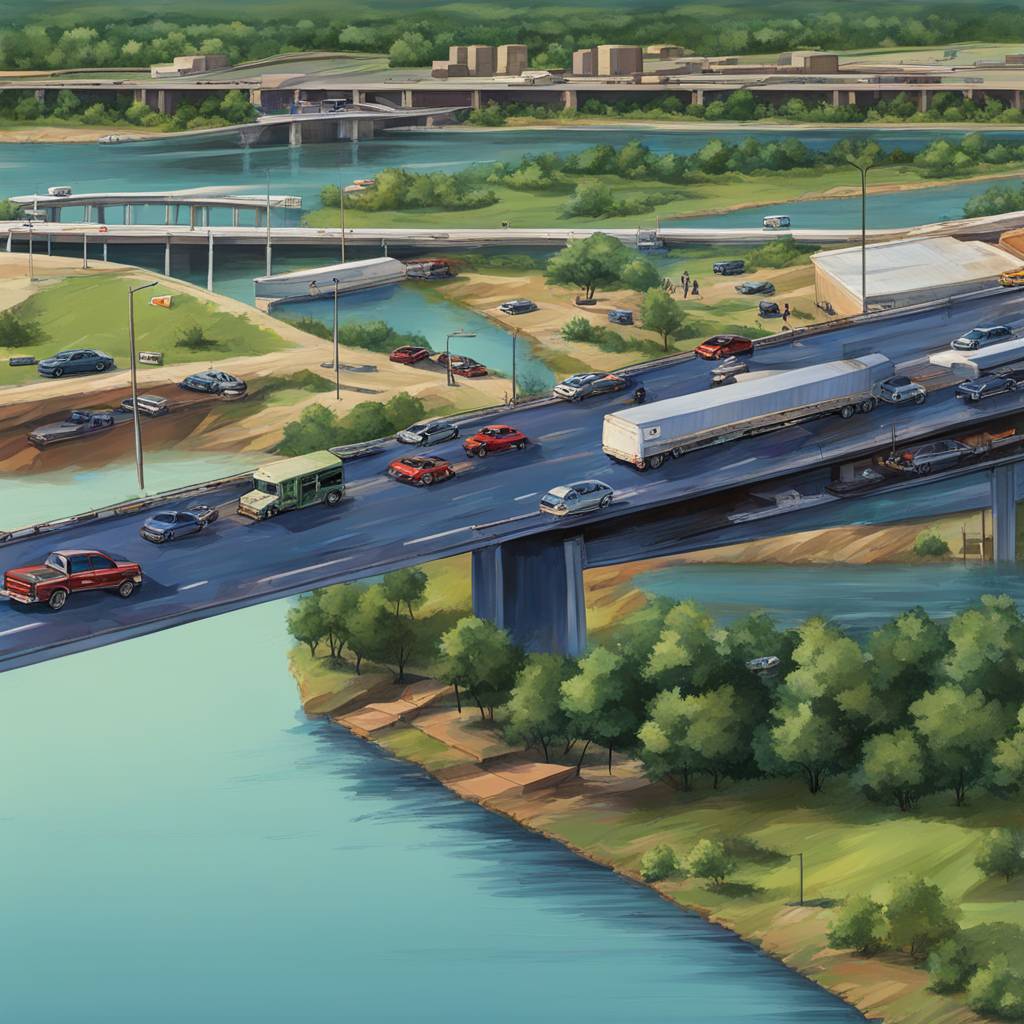A large barge hit a bridge over the Arkansas River in Oklahoma, causing the nearby major highway to temporarily close as a result. The incident occurred near the Kerr Lock & Dam on Saturday afternoon, with the barge ramming into the bridge. Troopers closed South U.S. Highway 59 around 1:25 p.m. after receiving word of the collision and diverted traffic from the area. Fortunately, there were no reports of injuries on the highway or the barge.
Following the incident, the cause of the barge hitting the bridge was not immediately known. The Oklahoma Department of Transportation later reported that engineers had inspected the bridge and determined it was safe to reopen the highway to traffic. This incident highlights the potential dangers that large vehicles, such as barges, can pose to bridges over bodies of water. The impact of such collisions can lead to significant damage to the bridge structure, causing safety concerns for both drivers on the highway and workers on the barge.
In light of this event, questions may arise about the safety measures in place to prevent similar incidents from occurring in the future. The speculation surrounding what may have gone wrong before the bridge was hit by the barge raises concerns about the need for stricter regulations and oversight in such situations. Improving communication and coordination between the various entities involved in bridge maintenance and transportation may be crucial in ensuring the safety of infrastructure and the people who rely on it.
The prompt response by the Oklahoma Highway Patrol in closing the highway and diverting traffic away from the area demonstrates the importance of quick action in emergency situations. By taking swift measures to address the incident, authorities were able to prevent any injuries or further damage from occurring. This incident serves as a reminder of the critical role that law enforcement and emergency response teams play in ensuring public safety and managing potential risks.
As the investigation into the cause of the barge collision continues, it is essential for officials to identify any underlying issues that may have contributed to the incident. By thoroughly examining the circumstances surrounding the collision, steps can be taken to prevent similar accidents in the future and improve overall safety standards. The collaboration between different agencies and stakeholders involved in maintaining the integrity of bridges and roadways is vital in addressing potential risks and ensuring the reliability of critical infrastructure.
In conclusion, the barge collision with the bridge over the Arkansas River in Oklahoma highlights the importance of proactive safety measures and effective response protocols in preventing accidents and minimizing their impact. By learning from such incidents and implementing necessary improvements, authorities can enhance the resilience of infrastructure and safeguard public well-being. As ongoing efforts are made to investigate the cause of the collision and evaluate the response to the incident, it is crucial to prioritize the safety of both transportation systems and the communities they serve.













